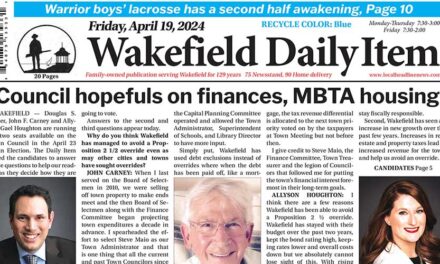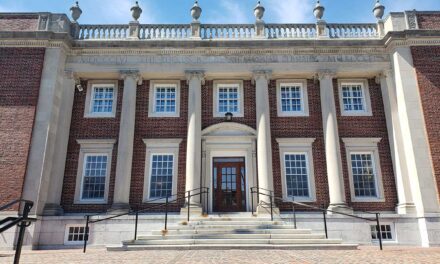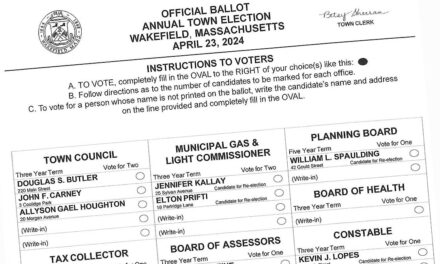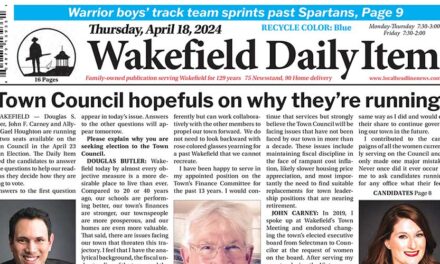By MARK SARDELLA
In the run-up to the Nov. 8, 2016 election that legalized pot in Massachusetts, how many times did you hear the claim that legalizing recreational marijuana would never lead to increased pot use among youth?
I heard it dozens of times, in paid advertisements, in op-ed pieces and on social media. The denial was wider and deeper than any river in Egypt.
“That’s a lie!” they’d scream.
“There’s no proof of that,” they’d howl.
If you cited a study from Colorado or some other state where weed was already legal, they’d say it had nothing to do with Massachusetts and cite some study by Dr. Cheech N. Chong of the High Times Institute.
I’m no genius, but even I predicted that when we legalized pot, more kids would end up using it.
But the stoners – excuse me, Cannabis-Americans – refused to admit it. Some of them got so agitated they almost got off their couches to lecture me.
“Dude, why don’t you do a little research,” they’d say. “Go out and educate yourself and come back when you have some facts, man.”
So how’s this for facts and research: the 2017 Wakefield Youth Risk Behavior Survey (YRBS). It’s been administered to students at Wakefield Memorial High School and the Galvin Middle School since 2011. The Youth Risk Behavior Survey was developed by the Centers for Disease Control, and it is used in schools across the country. So, if you doubt the validity of the survey, take it up with the CDC.
And guess what? The survey conducted in April of 2017 showed that marijuana use by Wakefield Memorial High School students spiked by 10 percent this year. Thirty percent of WMHS students reported having used marijuana in the last 30 days, compared to 20 percent in 2016. And that’s just the ones willing to admit it.
Let me think, did something happen five months before this survey was done, maybe in November of 2016, to give kids the impression that using weed was acceptable?
Catherine Dhingra, Wakefield’s Substance Abuse Prevention Coordinator, has no doubt about the correlation between legalization and increased use of marijuana by local youth.
“In 2016, recreational marijuana became legal in Massachusetts,” Dhingra noted, “and you can see the impact right away here in Wakefield. You don’t see public health data jumps like that.
But what the hell does she know.
Back in 2011, 61 percent of WMHS students said that using pot was harmful. That was right before the whole legalization machine got into full gear, starting with the campaign for medical marijuana.
You don’t need a survey to figure out what will happen when you start telling people – especially kids – that a substance is medicine. But in fact, we do have a survey that tells us exactly what happened! Would you care to take a wild guess?
Then, once you’ve got the camel’s nose under the tent, you go ahead and say it’s not just medicine – it’s just fine to use it recreationally too! You can deny it all day long, but kids got the message – loud and clear.
In 2017 just 41.5 percent of Wakefield High School students think marijuana use is harmful. That means almost 60 percent of local kids don’t see any harm in using pot. I wonder how they got that idea.
But it gets worse.
In the 2017 Youth Risk Behavior Survey, 25.5 percent of Wakefield High School students reported having driven a car while high on pot. Again, that’s just the number willing to admit it on a survey.
That’s another area where the pot advocates tried to BS us, and apparently, they succeeded. If I had a dollar for every pothead who swore that legalizing weed would not lead to more people driving stoned, I could retire.
And now, in a scientific survey, a quarter of the Wakefield High School student body admits to driving stoned. I don’t even want to think about what the number is in the population at large.
If you swallowed the propaganda and the campaign ads bought and paid for by the Marijuana Industry claiming that legalization wouldn’t lead to increased pot use by kids and wouldn’t lead to more people driving stoned, and you voted to legalize pot, I hope you’re happy.
The results of your vote last November are right there in the 2017 Youth Risk Behavior Survey. They’re walking the corridors of Wakefield High School and driving the streets in your neighborhood.
I hate to say we told you so. But we told you so.





